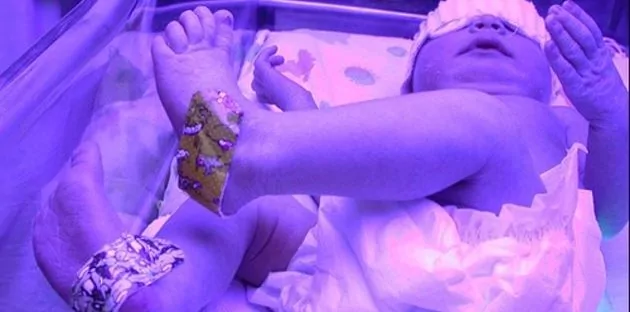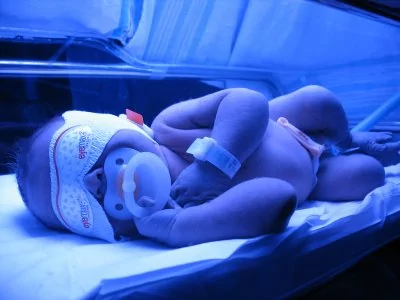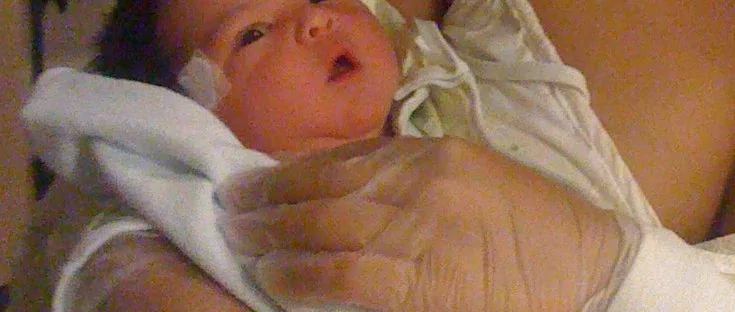By Christie del Castillo-Hegyi, M.D.
The true rates of excessive jaundice and hospitalizations of newborns for phototherapy due to jaundice has been recently published in JAMA Pediatrics published online April 11, 2016. In a study of 104,460 babies born between January 2010 and December 2013 in the Kaiser Permanente Northern California (KPNC) Healthcare System reported than an astonishing 12.4% of babies developed pathological hyperbilirubinemia of greater than 15 mg/dL in the study period, which has been shown in the scientific literature to increase risk of developmental disabilities. This translates to 12,953 babies or almost 12 babies a day. In addition, 5.7% of babies required phototherapy admission, translating to 5954 newborns or 5 babies a day.
California has a state mandate to require Baby-Friendly certification in all its hospitals by 2020, which requires that >80% of eligible newborns be exclusively breastfed at discharge, the primary quality metric of the BFHI. Many California hospitals are working towards that designation and their exclusive breastfeeding rates at discharge are tracked by the California Department of Public Health. Estimates of excessive jaundice in the KPNC hospital system, which has among the highest exclusively breastfeeding rates at discharge, all except 2 reaching the >80% requirement, was described by this study. Seventy-one percent of these hospitalizations were extensions of the original birth admission, which means pathological jaundice was detected before discharge and the newborn’s hospital stay was extended to reduce the pathological effects of bilirubin, namely brain injury.

Severe newborn jaundice and phototherapy increase the risk of developmental disability
Continue reading →
![]()



